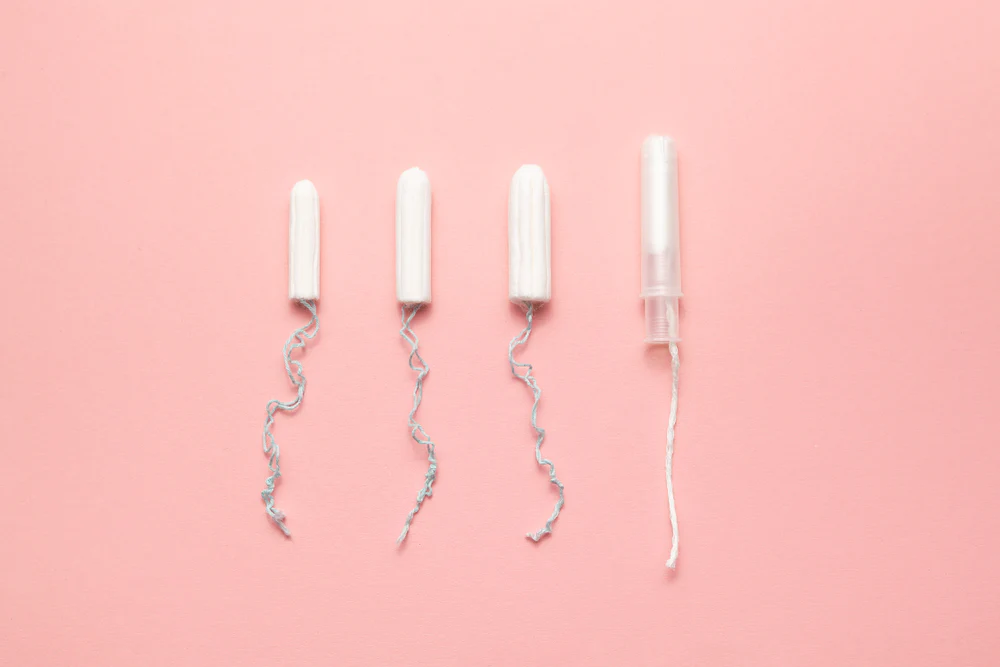Are you one of the many women who have experienced discomfort or pain when using tampons? You’re not alone. Many women wonder why tampons hurt and if there is a way to make the process more comfortable. In this article, we will explore the reasons behind the pain and provide some helpful tips to alleviate any discomfort.
Additionally, we will address common concerns such as tampons sticking to the walls of the vagina and the pain associated with removing them. We’ll provide solutions, such as using lower absorbency tampons, to prevent these issues.
Contents
Do Tampons Hurt?

Using tampons should not be a painful or uncomfortable experience. Understanding why some women may experience discomfort can help alleviate any concerns or fears you may have. Here are a few reasons why tampons may hurt and what you can do to make the process more comfortable:
1. Tension and Nervousness: Sometimes, the anticipation of pain can cause tension in the vaginal muscles, leading to discomfort when inserting a tampon. If you’re feeling anxious or afraid, take a deep breath and try to relax. It can help to insert the tampon while exhaling, allowing your muscles to naturally relax.
2. Incorrect Insertion: It’s important to insert the tampon properly to avoid discomfort. Make sure you’re using the correct technique and positioning the tampon in the right place. A tampon should never hurt if it’s properly inserted inside the vagina.
3. Tampon Absorbency: Using a tampon with a higher absorbency than what you need can lead to discomfort. If the tampon is too dry, it can cause friction and irritation when removing it. Opt for a lower absorbency tampon, like a “regular” or “light” option, to reduce the risk of sticking to the vaginal walls and make removal easier.
How to Put a Tampon in Without It Hurting?
Inserting a tampon shouldn’t hurt. It should be a simple process that, once done correctly, you won’t even feel it’s there. If you’re experiencing pain or discomfort, don’t worry. It’s common, especially if it’s your first time. Here are some tips to help you put a tampon in without it hurting:
- Relax: The key to a pain-free tampon application is to relax. Find a comfortable position, such as squatting, sitting on the toilet, or with one foot on the toilet seat. Take a few deep breaths to calm your nerves. When you’re relaxed, your vaginal muscles will be more cooperative, making insertion easier and more comfortable.
- Choose the right size: Tampons come in different absorbencies. It’s important to choose the right size for your flow. If you’re new to tampons or have lighter flow, start with a smaller or regular-sized tampon. Using a larger, more absorbent tampon than necessary can cause discomfort. Start with a size that feels comfortable and gradually move up if needed.
- Proper insertion: Make sure you’re using the correct technique when inserting a tampon. Hold the tampon applicator with your thumb and middle finger. Relax your vaginal muscles and gently guide the tampon into your vagina at a slight upward angle. Push the applicator until your fingers touch your body. This ensures that the tampon is properly positioned.
- Change regularly: It’s essential to change your tampon every 4 to 8 hours, depending on your flow. Leaving a tampon in for too long can increase your risk of infection and discomfort. Regularly changing your tampon will help keep you comfortable throughout the day.

What if it’s still uncomfortable?
If you’re still finding tampons to be uncomfortable, don’t worry, there are a few things you can try to make the experience more comfortable.
Here are some tips to consider:
- Relax: Before inserting a tampon, make sure you’re in a comfortable and relaxed environment. Take a few deep breaths to help calm any anxiety or tension you may be feeling. Remember, the more relaxed you are, the easier the insertion process will be.
- Experiment with different sizes and types: It’s important to choose the right size tampon for your flow. If you’re experiencing discomfort, it could be because you’re using the wrong size. Try a smaller size or switch to a different type of tampon, such as a slim or compact version. Don’t be afraid to try out different brands as well, as some may offer a more comfortable fit.
- Insert at the right angle: When inserting a tampon, it’s important to aim towards your lower back rather than directly upwards. This can help with a more comfortable insertion, as the tampon will follow the natural curve of your vagina.
- Change tampons regularly: To avoid discomfort and the risk of toxic shock syndrome (TSS), it’s essential to change your tampon every 4-8 hours, or more frequently if needed. Leaving a tampon in for too long can lead to discomfort and an increased risk of infections.
- Consider alternative menstrual products: If tampons continue to be uncomfortable, you can explore other menstrual products such as pads, menstrual cups, or period underwear. These alternatives offer different levels of comfort and protection, so you can find the option that works best for you.
Conclusion
By following the tips and techniques outlined in this article, you can insert a tampon without experiencing any pain or discomfort. Remember, relaxation is key. Take a deep breath and find a comfortable position before inserting the tampon.
FAQs
Do tampons hurt the first time?
A tampon may hurt the first time you try to insert it, but it shouldn’t be bad. Practice and taking your time can help make it more comfortable.
Does it hurt to take a tampon in?
Tampons shouldn’t hurt when properly inserted. If you’re experiencing pain, it could mean you’re not inserting it correctly or using the wrong size. Take your time and try different techniques if needed.
Can I sleep with a tampon in?
It is generally safe to sleep with a tampon in for up to eight hours. Remember to change it as soon as you wake up to lower the risk of infection, like toxic shock syndrome.
Why can’t I push my tampon in all the way?
If you’re having trouble inserting a tampon all the way, it could be due to muscle tension or the angle you’re using. Relaxation techniques and finding the right approach can help.
I am a medical student with experience and interest in Women’s health and well-being.